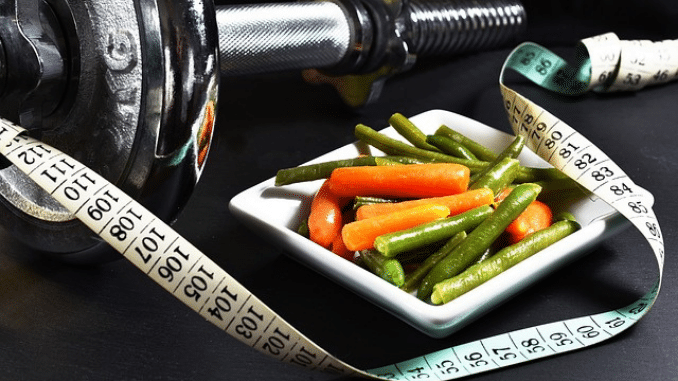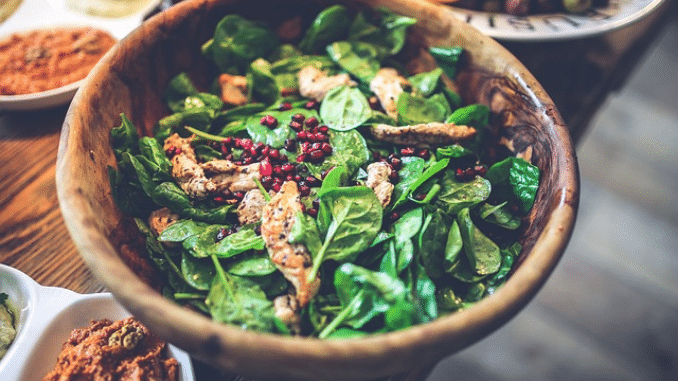
If you’re going through menopause, you may have noticed that all you have to do is look at a cupcake and you gain five pounds. So frustrating!
You’ve heard all the rumors, and you’ve seen the evidence — women tend to gain weight while going through the menopausal transition. Determined to maintain your figure and your active lifestyle, you may be willing to try just about anything to keep those excess pounds at bay, including going on a ketogenic diet.
Some say this extremely low-carbohydrate diet can help women sail through menopause while maintaining their figures. But is this sort of diet safe for you at this time? Here are some factors to consider.
Why Menopause Often Results in Weight Gain
Scientists don’t have all the answers about why women tend to gain weight during menopause. They do know, however, that several factors may contribute to this unwanted outcome like insulin changes, an increase in hunger hormones and other imbalances.
Insulin Changes
As levels of estrogen, the female hormone, drop during the period before and during menopause, insulin resistance seems to rise. Insulin is the hormone that processes glucose (sugar) in the blood, taking energy from the foods we eat and delivering it to the cells that need it.
When insulin is working correctly, blood sugar levels remain normal. If the body’s cells become resistant to insulin, however, this hormone can’t deliver glucose to the cells, so the glucose remains in the blood, increasing blood sugar levels.
In a 2011 study, researchers noted that insulin resistance often increases after menopause. An earlier study came up with similar findings, suggesting that menopausal changes were associated with hyperinsulinemia — high levels of insulin in the blood — which is most often caused by insulin resistance.
Insulin resistance is linked with weight gain, central obesity and type 2 diabetes and can increase the risk of heart disease and some cancers.
Hunger Hormones Increase
The hormone ghrelin helps regulate hunger, telling you when you need to eat to maintain your energy levels. During perimenopause, however, research suggests that levels of this hormone increase, compelling women to eat more even when they don’t need it.
In a 2008 study, researchers found that ghrelin levels were higher during perimenopause, compared to either the premenopause or postmenopause stages.
Other Imbalances Occur
As female hormones like estrogen and progesterone decrease during perimenopause, this affects levels of other hormones, including those that affect our metabolism. The result is a reduction in total energy expenditure, meaning women don’t burn as many calories as we did before.
Muscle Mass Decreases
As women age, they often lose muscle mass. Harvard Health indicates that everyone starts to lose muscle mass, starting at the age of 30, at a rate of about 3 to 5 percent per decade. It’s called “sarcopenia,” and it can result in a slower metabolism, making it easier to gain weight.
Other factors can contribute to the issue too, including a slowdown in activity, genetic influences, lifestyle changes and more. The bottom line is that during this period in a woman’s life, it’s far too easy to gain weight and not so easy to lose it or even maintain it.
3 Pros of a Keto or Low-carb Diet During Menopause
Considering all of the factors working against them, many women turn to low-carb and keto diets during perimenopause and menopause to help them avoid the inevitable weight gain or lose the extra pounds they’ve already put on.
Here are some reasons why a keto or similar diet may work for you during this time.
1. Keto Diets Help Suppress Appetite
Keto Diet for Menopausal Women: If one of the issues causing weight gain during menopause is an increase in hormones promoting hunger, then it makes sense that the keto diet may help because it may help reduce levels of the hunger hormone ghrelin.
In a 2013 study, researchers discovered that while participants were on the keto diet, the typical increase in ghrelin and appetite that one might expect while dieting was suppressed. The participants reported that they had a lower appetite while on the keto diet.
2. Keto Diets May Help Reduce Dangerous Abdominal Fat
Keto Diet for Menopausal Women: One of the problems with menopausal weight gain is that it tends to accumulate around the middle rather than in the hips and thighs. This is a more dangerous type of weight gain and increases the risk of heart disease and other health issues.
Keto and other low-carb diets may help reduce this type of weight gain. In a two-year randomized controlled trial of 70 obese postmenopausal women. A low-carb paleo diet led to a greater reduction in abdominal fat than a low-fat diet did.
3. Low-carb Diets May Help Lower Levels of Dangerous Fats
Keto Diet for Menopausal WomenWeight gain often leads to higher levels of cholesterol and triglycerides. Both of which can increase the risk of artery narrowing and cardiovascular disease. Low-carb diets can counteract this effect.
In a 2013 study, researchers found that overweight and obese women aged 47 and older who followed a low-carbohydrate diet had greater reductions in the ratio of total cholesterol to high-density lipoprotein (HDL) “good” cholesterol and in the ratio of triglycerides to HDL cholesterol than those who reduced calories.
Other ‘Benefits’ Remain Unproven
Although many sites on the Internet claim that the keto and other low-carb diets can curb menopausal symptoms like hot flashes and mood swings, we don’t have any clear evidence of that.
3 Cons of a Keto or Low-carb Diet During Menopause
Keto Diet for Menopausal Women: It’s not all good news when it comes to low-carb diets and menopause. So if you’ve tried one of these diets and haven’t had success, don’t blame yourself. It turns out that menopause can make these diets particularly difficult for three main reasons.
1. Low-carb Diets May Not Work For You
Keto Diet for Menopausal Women: Men and women tend to react differently to any diet, with men often having an easier time of losing weight than women do.
This is true with the keto or other low-carb diets. A recent animal study found that after 15 weeks on the keto diet, male subjects maintained blood glucose control and lost body weight. Female subjects, on the other hand, gained weight and had poorer blood sugar control. At the end of the study, they developed impaired glucose tolerance — a precursor to diabetes.
2. Low-carb Diets Stress Your Body
Keto Diet for Menopausal Women: Your body is already dealing with the menopausal transition, which is stressful enough. Unfortunately, a keto or low-carb diet may increase that stress. The female body needs carbohydrates to sustain healthy hormone levels and, without those carbs, may suffer from imbalances that result in health problems.
There may be a drop in serotonin, for example, the “good mood” neurotransmitter in the brain, which can affect mood and energy. Changes in insulin metabolism and increasing changes in female reproductive hormones can not only lead to weight gain but other health issues as well.
As levels of the stress hormone cortisol increase, the body responds by producing more testosterone and estrogen and less progesterone, which can cause acne and worsen conditions like endometriosis and polycystic ovary syndrome (PCOS) and may even lead to type 2 diabetes, as elevated levels of cortisol have been linked with insulin resistance.
3. Keto Diets Contain Lots of Fat
Keto Diet for Menopausal Women: On a keto diet, you typically consume more fat than usual. A diet high in fat promotes estrogen production, which is also linked to weight gain. This may have something to do with the thyroid. In a 2011 study, researchers found that estrogen had indirect effects on the thyroid, suppressing its activity and thus, promoting weight gain.
This is why some women may initially lose weight on the keto diet but then began to gain it back again. A woman’s hormonal system is delicate, and a keto diet stresses hormonal balance. Cortisol levels increase, estrogen may increase, thyroid hormones may go down, and so on — everything reacting to the diet — which can result in an eventual plateau or rebound.
Will the Keto Diet Work for You During Menopause?
Considering the pros and cons listed above, it may be difficult to determine whether a keto or other low-carb diet may work for you. Under a doctor’s supervision, you can always try it short-term, but it’s important to understand that this diet is not one most people can or even should sustain long-term.
A better approach may be to make small, lasting changes to your diet and lifestyle that will help you maintain a healthy weight. Try the following tips:
- Increase your activity. As we get older, our bodies need more exercise to maintain weight. If you’ve been working out for 30 minutes, try increasing that to 45 or 60 minutes per day. Then, make a point to move more throughout your day.
- Keep up the cardio: Whatever another exercise you do, make sure you keep up with your cardio workouts. They help reduce that dangerous belly fat. If your joints are complaining about jogging, try cycling and spinning, swimming and fast walking to get your heart rate up.
- Cut back on sweets: If you have a sweet tooth, see if you can start satisfying it with healthy options like berries and other fruits. Shrink servings of sweet cookies, cakes, pies, and other similar items.
- Limit alcohol intake: Alcohol contains a lot of calories, and cocktails often have a lot of sugar — both of which can contribute to weight gain.
- Lift weights: Loss of muscle mass slows metabolism. Fight this trend with a twice-weekly weight-lifting routine. You can also use resistance bands to preserve your joints.
- Get seven to eight hours of sleep: Sleep deprivation throws appetite hormones out of whack, increasing the hunger hormone and decreasing satiety hormones. So do your best to get seven to eight hours every night.
- Practice stress-relief: To reduce levels of cortisol in your body, practice some stress-relieving exercise daily. Good options include a walk in the park, time with loved ones or a pet, music or art therapy, tai chi, yoga, journaling, meditation and anything else that helps you relax.
- Eat more protein: Protein keeps you full and satisfied and helps reduce muscle loss. Make sure you’re getting enough protein in every meal.
- Eat more fiber: Fiber keeps your digestive system healthy and also reduces appetite. Increase intake of fruits and vegetables, along with flaxseeds, beans, avocados, lentils and whole grains like quinoa and oats.
- Weigh yourself daily: Studies have shown that those who weigh themselves regularly are more successful at maintaining a healthy weight.
To discover the best foods for weight loss and healing your body, make sure to check out The Best Foods that Rapidly Slim & Heal in 7 Days, here!
.







